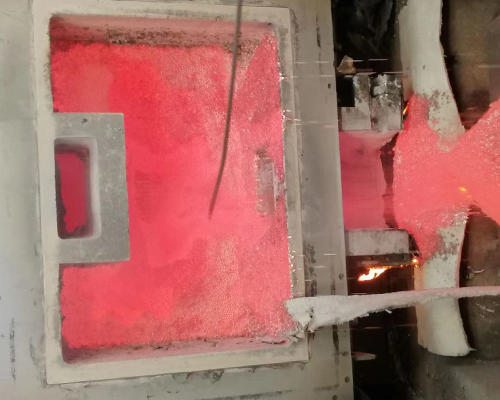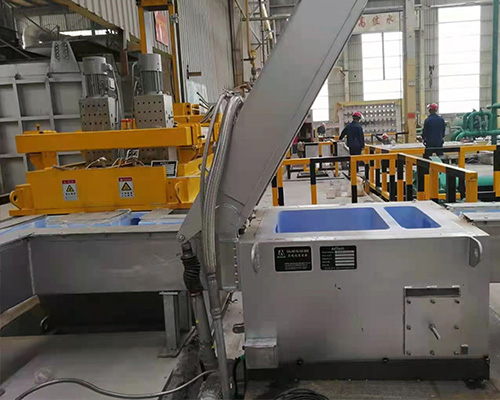After refining in the static furnace, wait for 30 minutes, the bubbles generated by the refining in the melt, carry the hydrogen that diffuses into the bubbles and the oxidized slag adhered to the surface during the rising stage of the bubbles overflow the liquid surface, for the low-grade products generally required. When the modifier is added in the smelting process, it can enter the casting process. However, for high-end products, online refining and online filtration are required to further purify the melt. At the same time, it is best to use the online modification method, so that the modifier is added about 15 minutes before casting, and then enters the casting process.
We know that casting and rolling is a continuous operation. Once it is produced, it may run continuously for several days or more than a week. However, the production efficiency of casting and rolling is low. Generally, the aluminum melt passing through the online degassing and filtration device is less than 2t per hour, so the capacity of the online processing device for casting and rolling should not be too large.
If the capacity is too large, the liquid aluminum stays in the refining tank and the CFF filter box for a long time. One is to increase equipment investment, prolong the processing time, and waste resources and energy; the other is to affect the product quality, especially the retention time of the aluminum liquid in the filter box exceeds half. For more than hours, the air content of the aluminum melt after online refining filtration has been greatly reduced, and the possibility and speed of reaction with the ambient atmosphere have increased, causing the air content to rise again. Practice shows that if the residence time exceeds 40min, the gas content of the melt increases by about 0.01m/ (100g Al).

As far as casting is concerned, more than 90% of aluminum alloy adopts semi-continuous vertical casting. The maximum capacity of each casting: the production of small and medium-sized pipes, rods, and profiles is about 15t. The production of large-scale tubes, rods, and profiles is about 35.
For the sake of convenience, we take 15t casting volume per batch as an example. The time for casting a batch varies with different alloy series, casting methods, and casting ingot diameters.
For medium specifications of soft alloys, because the crystallization interval is small, generally at 40-70℃, one batch of casting (casting length 6-8m) is about 1~1.5h. The crystallization interval of hard alloy 2024 is 136℃, 7075 The crystallization interval of the alloy reaches 158℃, and the crystallization interval increases. Under the same conditions, the casting time will naturally be prolonged, about 3h.

